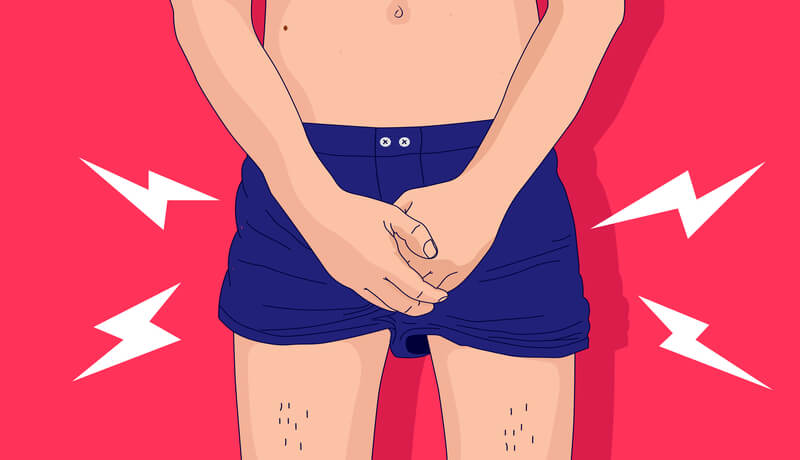Epididymo-orchitis symptoms
Understanding Epididymo-Orchitis: Causes, Symptoms, and Treatment
Epididymo-orchitis is swelling in the epididymis (the tube that stores and moves sperm) and/or the testicle. This problem often happens due to an infection, like a urinary tract infection (UTI) or a sexually transmitted infection (STI). With the right antibiotics, most cases clear up fully. Complications are rare with early treatment.
What is Epididymo-Orchitis?
Epididymitis means swelling of the epididymis, the part next to the testicle that stores and carries sperm. Orchitis means swelling of the testicle itself. Since the epididymis and testicle are close together, it can be hard to know which part is affected. Doctors often use the term epididymo-orchitis to describe swelling in either or both areas.
Causes of Epididymo-Orchitis
Several things can lead to epididymo-orchitis, and the cause often depends on age and health. Common causes include:
- Urinary Tract Infections (UTIs): In men over 35, bacteria from the urinary tract, such as E. coli, may spread to the epididymis and cause swelling. This risk is higher with conditions like an enlarged prostate or narrowed urethra, which can partly block urine flow, making UTIs more likely.
- Sexually Transmitted Infections (STIs): In younger men, STIs, like chlamydia and gonorrhea, are common causes. These infections often start in the urethra, causing pain and swelling, and then move to the epididymis and testicle.
- Mumps Virus: Although less common due to vaccination, mumps can cause orchitis in about 20% of cases in boys who get mumps after puberty. The virus reaches the testicles through the bloodstream.
- Post-Surgery Infections: After some surgeries on the prostate or urethra, bacteria may enter the area, leading to epididymo-orchitis. However, better surgery methods have lowered these risks.
- Medications: Some drugs, such as amiodarone (used for heart rhythm issues), may rarely cause epididymo-orchitis, especially in higher doses.
- Other Causes: In rare cases, other viral infections, tuberculosis, or immune conditions like Behçet’s disease can lead to epididymo-orchitis.

How Common is Epididymo-Orchitis?
Epididymo-orchitis affects about 1 in 1,000 males. It is more common in men aged 15 to 30 and those over 60. The condition is rare before puberty. Factors such as catheter use or other medical tools in the urethra can raise the risk of infection.
Symptoms of Epididymo-Orchitis
Symptoms usually appear within a day, and they often include:
- Scrotal Pain and Swelling: Swelling often happens quickly, leading to pain, tenderness, and redness in the scrotum. Pain is usually strong, especially when touched.
- Painful Urination: When a UTI or STI causes the infection, men may feel a burning sensation or pain while urinating.
- Penile Discharge: Discharge from the penis might happen if an STI, such as gonorrhea or chlamydia, is present.
- Fever and Malaise: Fever, chills, and general discomfort are also common signs of infection.
Diagnosing Epididymo-Orchitis
Doctors use several tests to diagnose epididymo-orchitis. These may include:
- Urine Tests: A urine sample helps find bacterial infections or STIs.
- Blood Tests: Blood tests can show signs of infection and inflammation in the body.
- STI Testing: When an STI is likely, urine tests or swabs can detect infections like gonorrhea or chlamydia.
- Ultrasound: An ultrasound may help identify epididymo-orchitis and rule out conditions like testicular torsion.
Treatment for Epididymo-Orchitis
Antibiotics: In most cases, doctors prescribe a two-week course of antibiotics to clear the infection. The type of antibiotic depends on the infection source. Doctors may use:
- Ciprofloxacin or Levofloxacin: Commonly prescribed for UTIs and other bacterial infections.
- Doxycycline or Azithromycin: Often used to treat STIs like chlamydia.
Pain Management and Supportive Care: In addition to antibiotics, treatments for pain and swelling include:
- Supportive Underwear: Wearing supportive underwear can ease pain by reducing movement in the scrotum.
- Pain Relievers: Over-the-counter pain relievers, such as ibuprofen, help reduce pain. Applying an ice pack wrapped in a cloth can also reduce swelling and relieve pain.
Avoid Sexual Activity: If an STI caused the infection, avoid sex until treatment is complete. Sexual partners may also need testing and treatment to prevent reinfection.
Recovery and Follow-Up
Symptoms often improve within a few days after starting antibiotics, though full recovery may take a few weeks. Men should follow up with their healthcare provider if:
- Symptoms do not improve after three days.
- Symptoms last beyond two weeks.
Complications of Epididymo-Orchitis
Most men recover fully, but untreated epididymo-orchitis may lead to complications, such as:
- Chronic Pain or Swelling: Some men may experience ongoing pain or swelling for up to three months.
- Abscess Formation: Pus may collect in the scrotum, requiring drainage through minor surgery.
- Reduced Fertility: Mumps-related epididymo-orchitis can reduce fertility if testicular function is affected.
- Gangrene: Rarely, untreated infections can lead to tissue death in the testicle, which may require surgical removal.
Preventing Epididymo-Orchitis
Some measures can help reduce the risk of epididymo-orchitis:
- Practice Safe Sex: Using condoms can reduce the risk of STIs that may cause epididymo-orchitis.
- Stay Hydrated: Drinking water regularly supports urinary health and helps flush out bacteria.
- Limit Medical Procedures: Limit unnecessary catheterization or urethral procedures, as these can increase the risk of infection.
- Vaccination: Make sure you are vaccinated against mumps to reduce the chance of orchitis.

Conclusion
Epididymo-orchitis is a treatable condition, and early treatment usually leads to a full recovery. Recognizing symptoms early and completing the prescribed antibiotics can prevent complications. Understanding the causes, symptoms, and treatment options helps men manage this condition effectively.
If you experience symptoms of epididymo-orchitis, reach out to a healthcare provider promptly. Quick treatment helps ensure a full and comfortable recovery.
Request your Appointment by clicking on the picture below.

